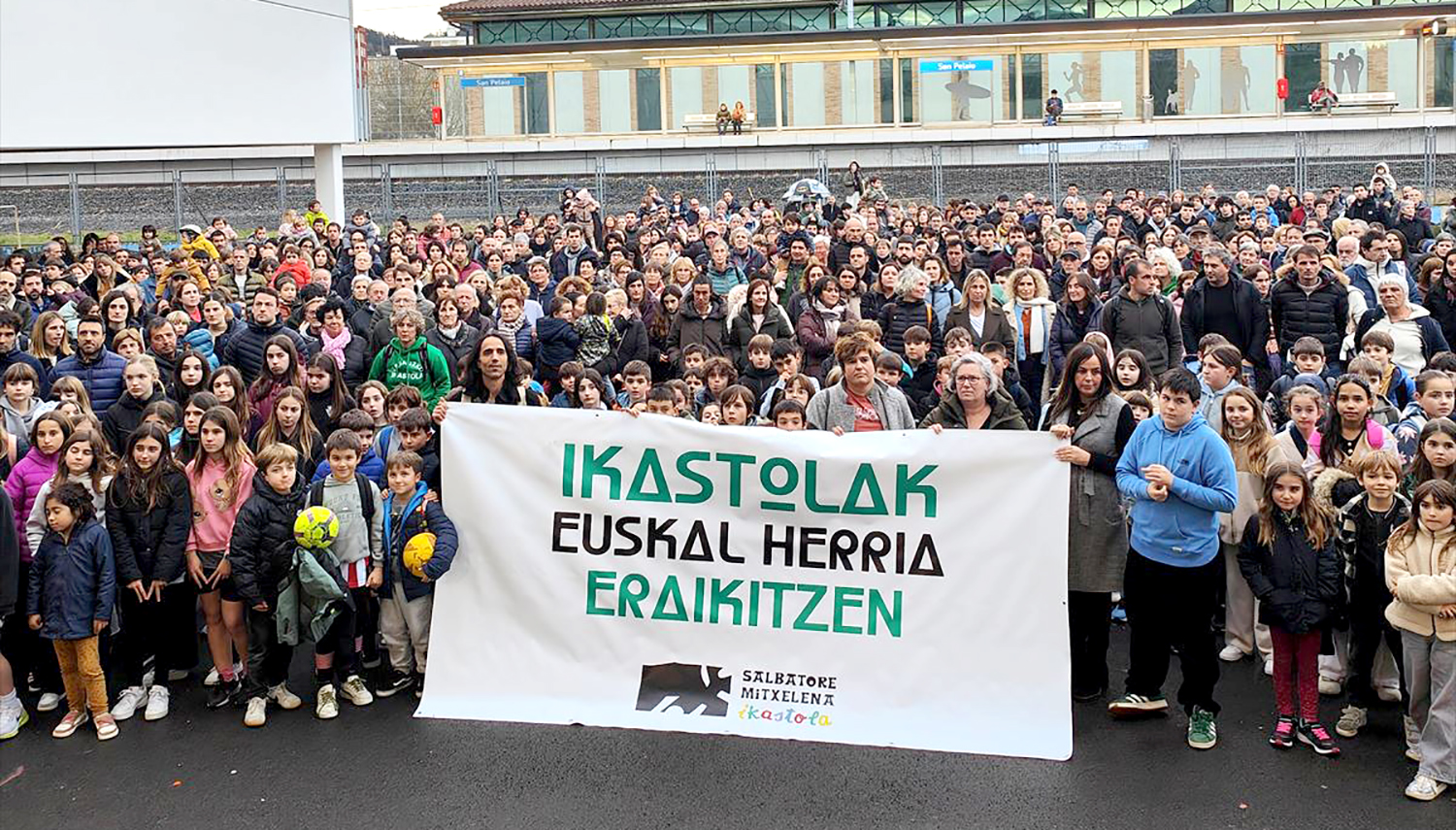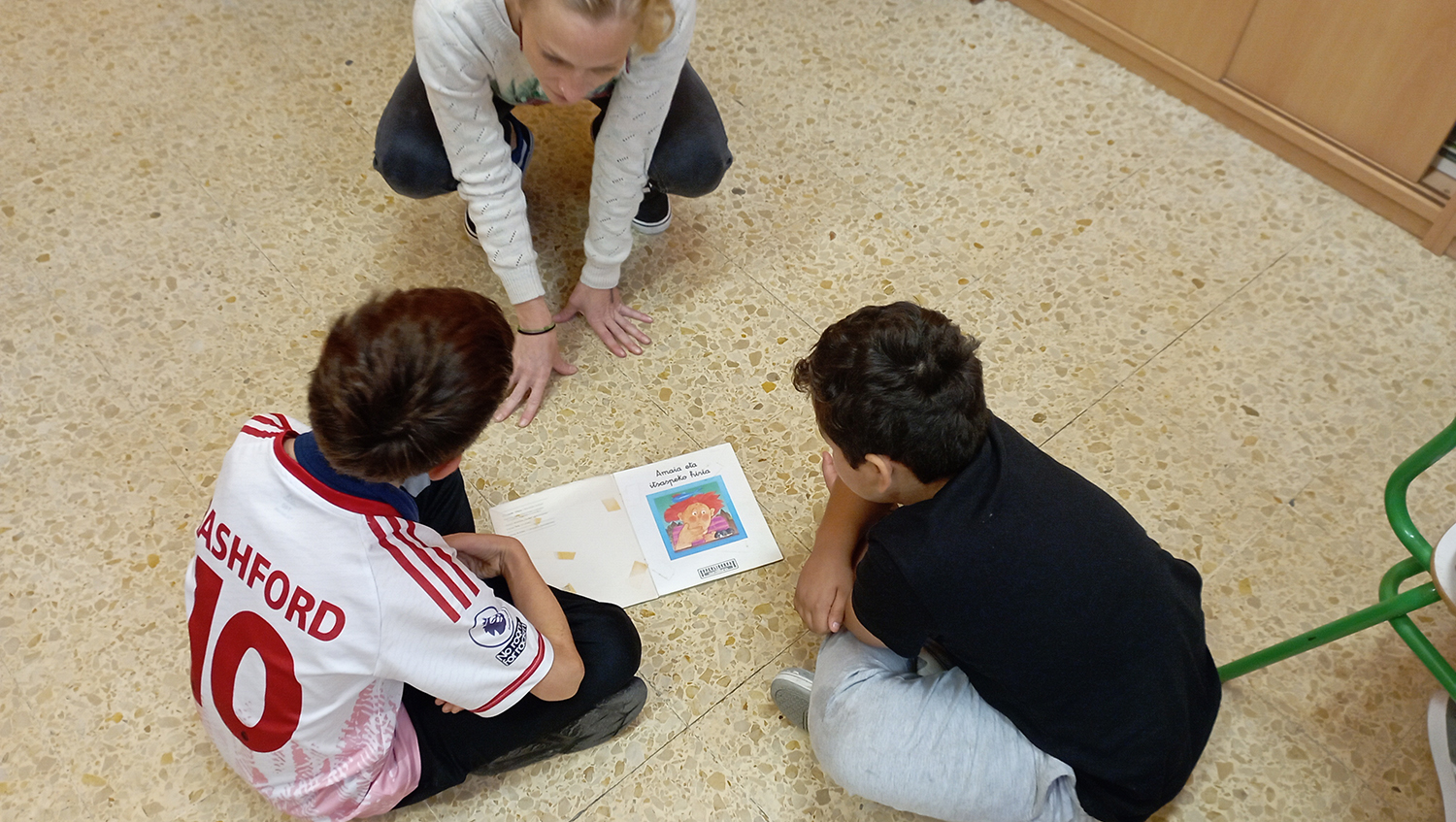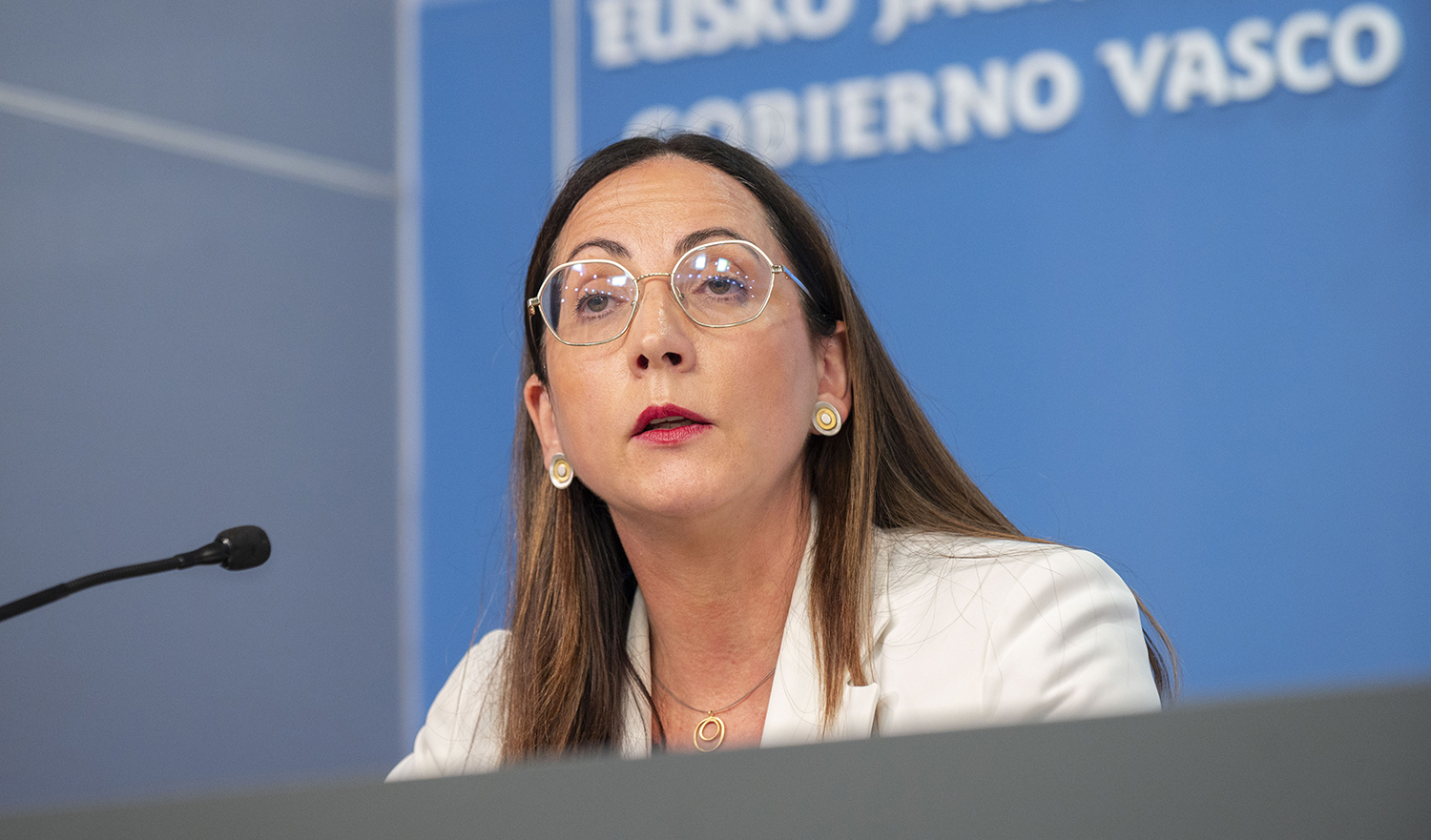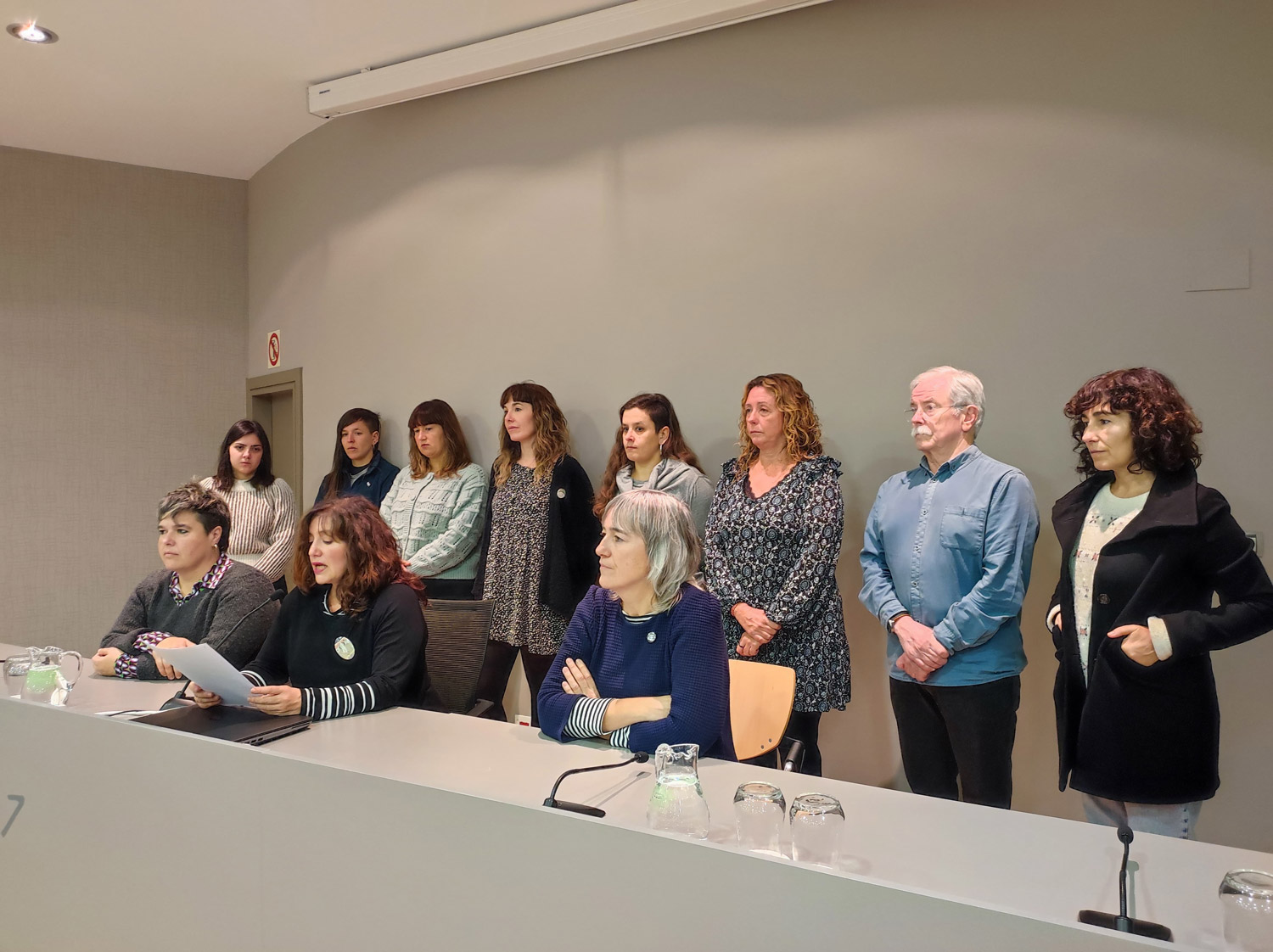The Education Act gives birth to failed goals
- Without achieving the social and political support it sought, the CAV Education Act has been given the green light this Wednesday in the Education Commission. The law had three challenges: overcoming the dual system of public and concerted centers, making a leap in the Euskaldunization of students and ending the segregation of students. But does the law really have effective measures to end concertation, to ensure a better Euskaldunification and to curb segregation?

The PNV and the PSE have given the green light to the law by voting against all the political opposition. What has happened on the road to losing social and political support instead of joining in? What were your intentions and what did the law eventually mean? A bit of chronology before entering the salsa.
The adoption of a new education law has long been an ambitious undertaking for the Basque Government. In 2013, as Minister of Education, Cristina Uriarte, the 2020 Heziberri plan was launched, with the ultimate goal of creating an education law. But the year 2020 came, and the Department of Education barely presented in the Basque Parliament a draft that did not have the consensus of the educational community and political parties and that received many criticisms. In addition, a spark that has persisted in all these years was triggered: the possibility of new funding and distribution of resources from educational centers made the relationship between public and concerted centers bad.
Jokin Bildarratz took control of Uriarte in the sub-area and the hot potato, commissioned to make the law. From the outset, a large, pessimistic sector appeared on the street, but a climate of consensus and meeting seemed to have prevailed politically, and on 18 March 2022, an educational pact was signed under 90% of parliamentary political representation: 43 measures agreed between PNV, EH Bildu, Elkarrekin Podemos and PSE.
No more than a year has passed and the photo has become obsolete. The preliminary draft law submitted by the Government did not convince the parties involved in the agreement, they stressed that it was excessively diffuse, that there was a emptying of the agreement to the preliminary draft. Later, Elkarrekin Podemos went down the cart, arguing that the law perpetuates the current model of concertation and lack of commitment to school segregation; and at the last moment, when referring the law to current linguistic models (at the request of the PSE), EH Bildu has also abused the agreement. The Committee on Education has given the green light to the law that has weakened the last round, which will be adopted on 21 December in the Basque Parliament, protected by 54% of political representation, far from the initial 90%.
Other critical voices have also been added in the educational world from the beginning. The process has left several mobilizations, two days of strike and the disagreement of many agents, especially the return of the public school and Basque culture, so great is the opposition that manifests itself in some sectors that calls into question the social legitimacy of the law. EHIGE, Heize, Ikasle Abertzaleak, Ikasle Ekintzak, Gazte Komunista, Ikasle Sindikatua, STEILAS, CCOO, ESK and MONDRAGON join the recent demonstration organised by the Euskal Eskola Publikoa Harro platform to reject and suspend directly. Shortly thereafter, 37 professors from the Schools of the UPV/EHU have requested that the law be restarted and the process of zero started.
As the legislative process progresses, mistrust has grown in many. School organization expert Gonzalo Larruzea is an example. He has participated on more than one occasion as an expert in the Committee on Education and has been more pessimistic in recent sessions. He denounces that the law is too open and therefore feeds mistrust, because it leaves hands free to the Department of Education at every moment to decide which direction to take. Even the Department of Education itself has pushed for a law that will not tie hands too much, more flexible compared to other laws. According to the PNV, it has acted in this way so that the law has a long life, but what sense does it make if it does not have enough precision to set and guarantee the measures agreed in the agreement?
The Department of Education itself has pushed for a law that will not join hands too much, but what sense does it make if it does not have enough precision to guarantee what is agreed in the agreement?
Is everything public?
The formula known as the Basque Education Service (one of the main pillars of the law) was intended to place "duties" on the concerted centers and reverse the current dual model (around 50% of the students are in the public network and another 50% in the concerted network). Measures were also envisaged for the growth of public schools, but the opposite has not been achieved: to perpetuate the system of universal consultation and the dual model.
Many returning public school officials criticised the formula from the outset: in theory, any centre responding to a series of obligations will be part of the Basque Education Service and will receive 100% public funding (in return students and families will not be charged fees). This formula puts public and concerted centres at the same level, no effective measures are taken for the growth of the public school or to deal with the problems it has, so from the outset they denounced that it is a way to the detriment of the public school and the privatisation of education (let us remember that the PNV calls this service, for example, the Basque Public Education Service, which adds the word "public", emphasising it. Critics opted for another formula: making it possible to publish the concerted centres (turning them into public schools) and being a priority formula, but the law only provides for this possibility as an additional provision.
Other agents initially valued the Basque Education Service, but have seen that it is not going to work as required by law. The law requires the center to respond to a series of obligations to be part of the service (lack of profit, commitment against segregation, prioritization of the Basque Country…), but with obligations, in practice there are no out-of-service centers, all those concerted will be part of the service and will receive 100% funding, all of them equal, all of them of social interest. This was also deduced by EH Bildu, PSE and Elkarrekin Podemos, who supported the formula in the agreement, after seeing how the law gathers the formula. PNV representative Leixuri Arrizabalaga himself acknowledged: "It's hard to believe that any center is out." For example, secularism is among the obligations imposed on the centers, so how will this affect the Christian School? What changes will these concerted centres make to be part of the Basque Education Service? They do not have to make any changes, the law allows a center to be both secular and Christian.
EH Bildu has tabled amendments to the bill to regulate and enforce obligations, including fines, but has denounced that the amendments have not been accepted: to the concerted "they are given rights, there are no obligations, there are no filters to be part of the public service, that has been paid! ", said Ikoitz Arrese, a member of EH Bildu. Gonzalo Larruzea also criticizes the trajectory of the Basque Education Service under the law: "The horizon was the quantitative and qualitative growth of the public school, and this is compatible with the existence of concerted schools, always well defined what their social and public interests are, but we have come to create a structure to give public character to all centers. The agreement stated that a parliamentary debate was to be held, that there were decision-making obligations and instruments for their implementation, but it has not been done, that inaccurate principles have been established, without criteria or verification measures, and that there is no time limit for their implementation. The lack of criteria and deadlines is particularly serious. All this makes it possible to perpetuate universal consultation".
If everyone fits into the same group, in practice without any real commitment, will they not follow in the same way, but with the same level of funding and the same status? Will the same competition and consequently segregation not be maintained? Given that the current playing field is set as a competition between schools, what will be the "winner" of that competition? Public school officials are clear that what the law should contain is a strategic plan for the public school that responds to its problems and needs and that turns the public school into a central and structuring network of the educational system (ideological foundations, educational principles, funding, planning, management and creation of public school places, pedagogy of educational spaces, organizational resources, socio-critical school curriculum, educational social innovation, human resources and stability of educational resources).
Public or concerted, if everyone is in the same group, without any real commitment in practice, will it not remain the same, but with the same funding and status?
What exactly does the new Euskaldunisation model mean?
The law says that current linguistic models A, B and D are maintained at the request of the PSE and in accordance with the PNV. This decision has made EH Bildu do not support the law, but beyond the reference to linguistic models, Basque cultural activity is critical with the approach of the Euskaldunization law of students. Moreover, Euskal Herrian Euskaraz says that the demands made from the Basque culture have been "turned back" and that "this law is a resounding no".
The law is based on a “multilingual system centered on the Basque language”, in which at the end of compulsory education students must reach the B2 level in Basque (also in Spanish B2 and in a third language B1), an objective that each center must develop its own linguistic project from the sociolinguistic context of the center. On the one hand, the lack of concreteness has provoked alarms and many agents complain (the Council of Euskalgintza, the public school, the Federation of Ikastolas...) because the law does not say how many hours of class should be given in Euskera, in what proportion the language of teaching and learning must have the Basque language. The law allows the current immersion or the burning of model D, for example, if the center decides to teach some subjects in foreign language. Distrust is not uncommon, recalling Jokin Bildarratz's example: "A school center, located in an area where Spanish predominates, can decide that 80% of the school hours are taught in Spanish, but at the same time, from time to time, it can take the children to a three-day barnetegi to learn better Euskera, or organize all extra-school activities in Euskera, or the dining hours..." In other words, the erdaldun socio-linguistic context can be an excuse not to teach most of the teaching hours in Basque. But if the objective is to Euskaldunizar, should not claim precisely the model of immersion in Castilian sociolinguistic contexts, should not guarantee more resources and maximum hours of Euskaldunization of the Basque Country in those groups in which the effort is greater? The Council is clear that education needs "an inclusive generalised learning model, based on a model of immersion and maintenance in which the Basque language is a standard language of teaching and learning". In short, experience has shown that model D or immersion and maintenance is the most successful model of Euskaldunization of students.
Asked about the inaccuracy of the system, Ikoitz Arrese, of EH Bildu, answered that for him the innovation introduced by the law is key: "All pupils must at the end ensure B2, which the schools must justify by means of a concrete assessment". This has also been questioned by Harro Topagunea about the Basque Public School, which has stressed that this request will not condition the obtaining of the degree.
On the other hand, the fact that each centre has to develop its own linguistic project has also generated the debate. Doesn't it put too much weight at the expense of the school community? In other words, without the support of firm regulations, will the school become the struggle of the Basque people in that community to ensure that the Basque country is really the axis of the linguistic project? Will the choice of families not affect the center that has a more Euskaldun or Castilian speaking project? Because in the same neighborhood there can be two very different sociolinguistic centers, and if each of them develops a linguistic project based on their reality in the center, will it not perpetuate that sociolinguistic reality of the school (and therefore segregation, exclusion, ghettification)?
The lack of concretion has provoked alarms because the law does not say how many hours should be taught in Euskera, in what proportion the Basque language should have the vehicular and vehicular language.
Distribution of vulnerable
The public school receives many more students than those concerted living in vulnerable situations, and within the public school there are also the "guetto ikastetxea" due to their high rate of vulnerability. The main challenge for political parties was to reverse this law. But the two points that we just worked on do not increase the risk of deepening segregation? To the extent that the Basque Education Service grants all schools the same status and funding of 100%, and at the same time its problems are not solved according to the public school (high rates of vulnerability, high percentage of temporality of teachers, infrastructure problems...), Isn't it going to favor the unequal distribution of students? And in the case of Euskaldunization, as we have mentioned, will linguistic projects not be another factor in segregation? Regarding the centers' innovation projects, the law also announces the contracts program: Will the distribution of resources according to the most interesting innovation initiatives not increase fragmentation, knowing that some centres have more capacity than others to take steps in innovation? Let us remember that the birth rate is falling, the future landscape foresees fewer students and, if things do not change very much, the competition to attract the remaining students, to see which school will survive, who will have to close the doors...
As for the measures taken by the law to deal with segregation, the vulnerability rate has been set, the administrative unit that will control the gratuity to not collect fees is mentioned, the existence of a public centre has been guaranteed in each area of influence and schools must reserve a certain number of places for the most vulnerable students. In the measures that have already been applied for the registration process of this course, we have seen that the reserve of places has been made a posteriori, not before, that despite the existence of a public center in the area of influence has been extended the scope of influence (and therefore, in its locality no, it is possible to adapt the public square to the next one, arguing that the neighboring population has remained within the area of influence), that the offer has continued For agents such as the Inclusive School Association, the Zubiak Eraikiz platform and the Save The Children organization, the law can take more measures to address segregation, including the request to each center of a percentage of vulnerable students and the establishment of a unified and unique enrollment office.
The law also advertises program contracts: distributing resources according to the most interesting innovation initiatives will not increase fragmentation?
Etc., etc.
Clearly, the law also addresses more issues. There are agreements seen with good eyes (such as the gratuitousness of the haurreskolas) and others have aroused criticism (development of autonomy through the abovementioned program contracts; high prominence of local entities in the announced educational decentralization and limited prominence in the end; not having taken more effective steps in favor of ethical, responsible and Basque digitalisation, according to the educational group Librezale…). But in general, advertising, the Basque language and segregation are the ones that grow the most, to the point of questioning the political and social support that the law has. The Education Act, which he dreamed of ambition, begins in an atmosphere of confrontation.
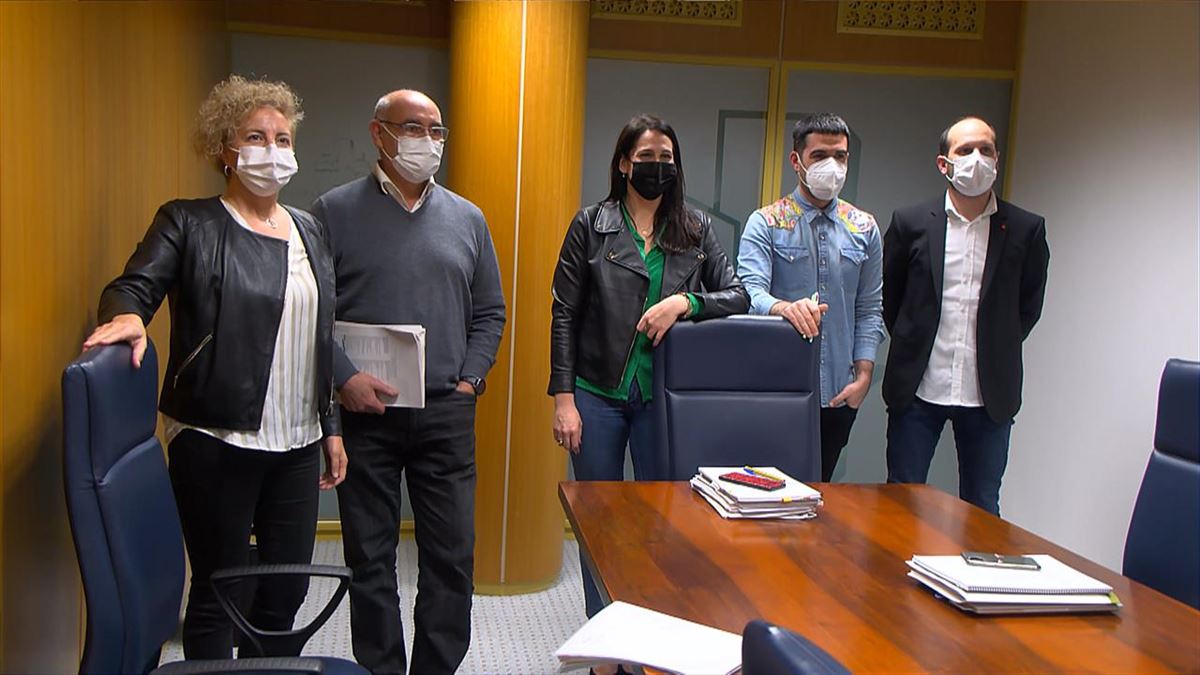
Why concerted teaching?
The new Education Act adopted by the CAV against most public school officials aims to ensure that concerted education is free of charge through the financing of public authorities. The Spanish State has also announced a significant increase in public... [+]
Hunters, Marianistas, Niño Jesús, CEU San Pablo - Virgen Niña, Carmelitas, Presentation of Mary, Vera Cruz, NClic, San Viator, Escorapias, Scholapios, Bárdarias, Nazareth, Immaculate Conception, Hogar San José, Egibide. More Olabide by Eusko Ikastolen Batza. Finally, the... [+]
In response to the numerous statements of the new Education Advisor, Begoña Pedrosa, Law 17/2023 on Education will be implemented at the beginning of the course, approved in Parliament with the sole support of the PNV and the PSE. This implementation will entail the application... [+]
Who orders us ...?
The Basque Government has just been set up and the Minister for Education will be Begoña Pedrosa. Being a vice-counselor in the previous legislature and being one of the founders of the new Education Law passed last December, we are allowed to ask some... [+]
The recently passed Education Act is as bad as it is new. Throughout the processing process there has been a broad social sector against the spirit of this law, and this opposition has been greater in the face of its adoption. We want to make public the assessment and reflection... [+]
The new Education Act, which had to be born of consensus, was adopted in anger and disagreement. The lack of agreement is due to the public-private question and linguistic models. A lot of pity.
In this we follow the Spanish model, because in the CAPV we are not able to lay... [+]
Those of us who write and sign these lines are young people between 20 and 26 years old who have joined us in the context of the generational relay of Euskalgintza. In our case, we have decided to contribute to the struggle of the Basque Country in the Basque Country from... [+]








